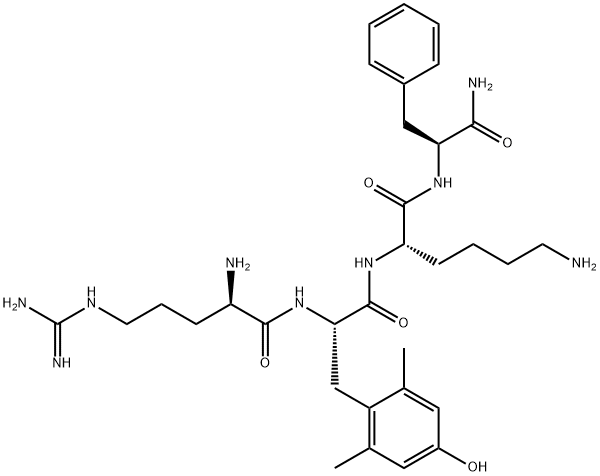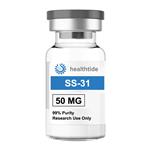
Elamipretide
- Product NameElamipretide
- CAS736992-21-5
- CBNumberCB92708860
- MFC32H49N9O5
- MW639.79
- EINECS205-858-1
- MDL NumberMFCD20133791
- MOL File736992-21-5.mol
Chemical Properties
| Density | 1.34±0.1 g/cm3(Predicted) |
| solubility | Methanol (Slightly), Water (Slightly) |
| pka | 10.10±0.25(Predicted) |
| form | Solid |
| color | White to Off-White |
| Sequence | H-d-Arg-dimethylTyr-Lys-Phe-NH2 |
| Stability | Hygroscopic |
| InChIKey | SFVLTCAESLKEHH-WKAQUBQDSA-N |
| SMILES | C(N)(=O)[C@H](CC1=CC=CC=C1)NC(=O)[C@H](CCCCN)NC(=O)[C@H](CC1=C(C)C=C(O)C=C1C)NC(=O)[C@@H](CCCNC(N)=N)N |
| FDA UNII | 87GWG91S09 |


